Stock markets all over the world took a steep decline on Monday following Friday’s U.S. jobs report showing higher unemployment and leading to fears of a U.S. economic slowdown.
- Asian stock markets set the stage for Monday’s developments with Japanese stocks suffering their biggest loss since 1987. This was followed up by poor performances in European stock markets as well.
- The Dow opened more than 1,000 points lower, the S&P 500 was down 4.25% and the Nasdaq Composite plunged by more than 6%. Though this was followed by a slight rebound, the S&P 500 still finished the day with its biggest daily drop since September 2022.
On Tuesday, Japan’s market performed much stronger, and Wall Street opened slightly higher, making up some ground from the previous day’s performance.
Promotional products leaders from companies large and small watched the declines Monday with intense interest.
“As a business owner, seeing the markets in a tumultuous place is never comforting,” Paul Hirsch, MAS, CEO of the industry’s No. 20 leading supplier HIRSCH, told PPAI Media on Monday.

“With the massive slide that occurred on Friday and continued through today, we can only anticipate that corporations hit hardest will temper their spending going into Q3 and Q4 – especially big tech. However, hopefully we will see a rebound in the coming days as the Fed releases updates on interest rates, but it will be business as usual for us as we proactively make the necessary adjustments to our operations.”
Jo-an Lantz, MAS, president and CEO of Geiger, the No. 5 distributor in the PPAI 100, adds, “As with much of our industry, our business is influenced by the overall direction of the stock market, and yesterday’s downturn certainly drew our attention. This underscores the importance of market diversification and maintaining a global business presence.”
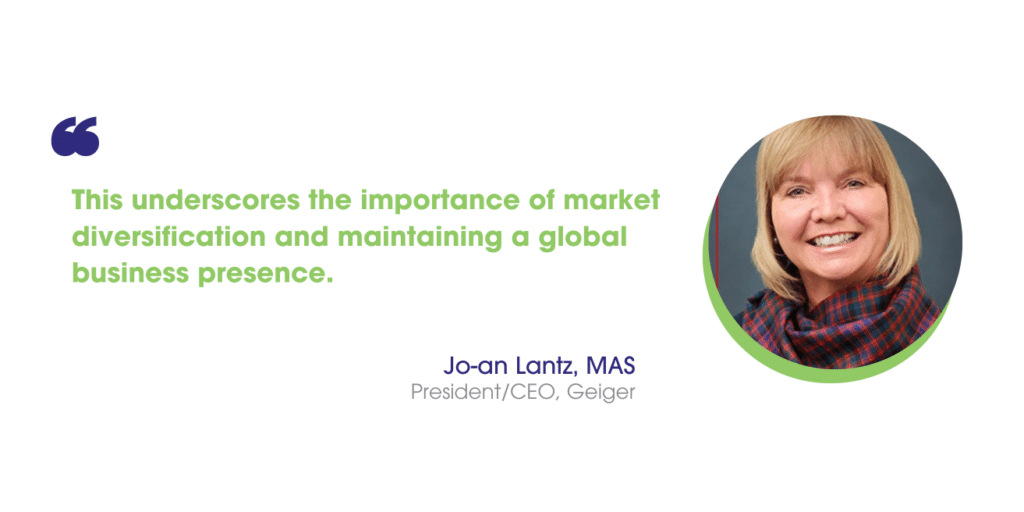
Chris Anderson, CEO of HPG, PPAI 100’s No. 6 supplier, and member of the PPAI Board of Directors, points out that the Federal Reserve began raising interest rates back in March 2022, hoping to cool off an unsustainably overheated economy that was causing inflation. Last week’s reports of unemployment and slowed manufacturing suggest the economy is indeed slowing down.
“From here, based on both conventional wisdom and direct signaling from the Fed, we can expect rate cuts in September – with the stated intention of creating a ‘soft landing’ for the economy (rather than stumbling into prolonged recession),” Anderson says.
Nichole Stella, CEO of AIMSmarter – the No. 15 distributor in the PPAI 100 – says that slower growth in the U.S. economy, inflationary woes, high interest rates, concerns over July jobs data, a potential recession, the presidential election, “Big Tech” earnings and fear of global wars are all feeding market jitters.

“A recession in the U.S. is certainly not a forgone conclusion, as financial experts continue to have varying views on the matter,” Stella says. “For the promotional products industry, it’s important that we keep an eye on the macroeconomic environment and run financially strong and healthy businesses, which always make tough economic times easier to weather. With the markets bouncing back this morning, I’m hopeful that cooler heads prevail across global markets and the sell-off was simply a market correction.”
More Promo Reaction
Monday’s stock market decline takes the S&P back to its early May levels, says Marc Simon, CEO of HALO – the No. 2 distributor in the PPAI 100.
“It might be a sign of impending recession,” Simon says. “However, the unemployment rate remains modest by historical standards and the participation rate continues to climb. There remain more jobs available than there are applicants to fill them. With interest rate declines on the near horizon, the economy may be given the lift that allows us to avoid recession.”
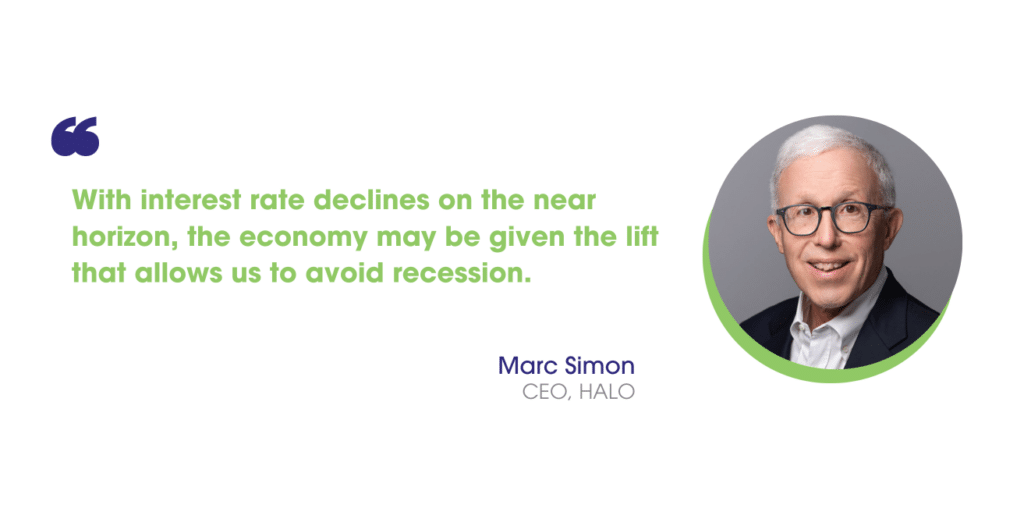
“High unemployment and an economic recession would both be negative for our industry,” Simon adds, “but the chances of either or both occurring continue to appear unlikely for the reasons stated.”
While it’s unfortunate that the market is reacting “so violently,” Jeff Lederer, co-owner and CEO of Myron – the No. 39 distributor in the PPAI 100 – believes it’s just a “short-term correction.” “With lower interest rates looming and a heated political environment, it will present opportunities for Myron and the industry at large in the short term,” Lederer says.
Vera Muzzillo, CEO at Proforma – the No. 3 distributor in the PPAI 100 – urges her fellow promo pros to stay cool, calm and collected while avoiding any knee-jerk reactions to the stock market’s performance.
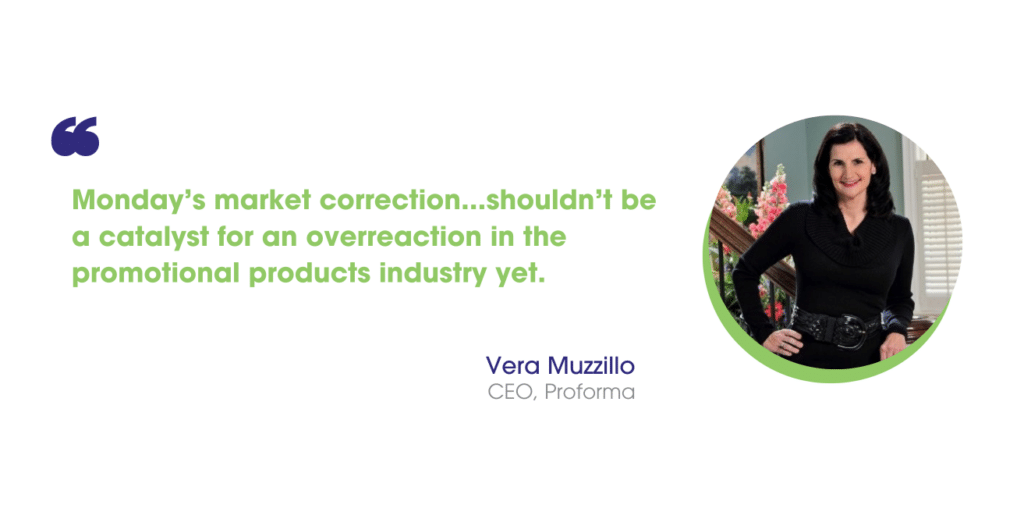
“Monday’s market correction correlates with other smaller corrections over the past few weeks and shouldn’t be a catalyst for an overreaction in the promotional products industry yet,” Muzzillo says.
“When looking at the bigger picture, year to date the market is still up close to 9% (S&P 500 and NASDAQ), and these adjustments have simply returned the market to the levels reflected in May. We should all continue to keep a close eye on the market’s performance over the next few days and weeks before making a broader and deeper judgement and forming any strong opinions.”
Craig Nadel, CEO of Nadel – the No. 9 distributor in the PPAI 100 – echoes that sentiment. “I don’t think there is any good reason for the market to move the way it did, but it moves a lot for no reason often. I don’t think it means anything,” Nadel says.
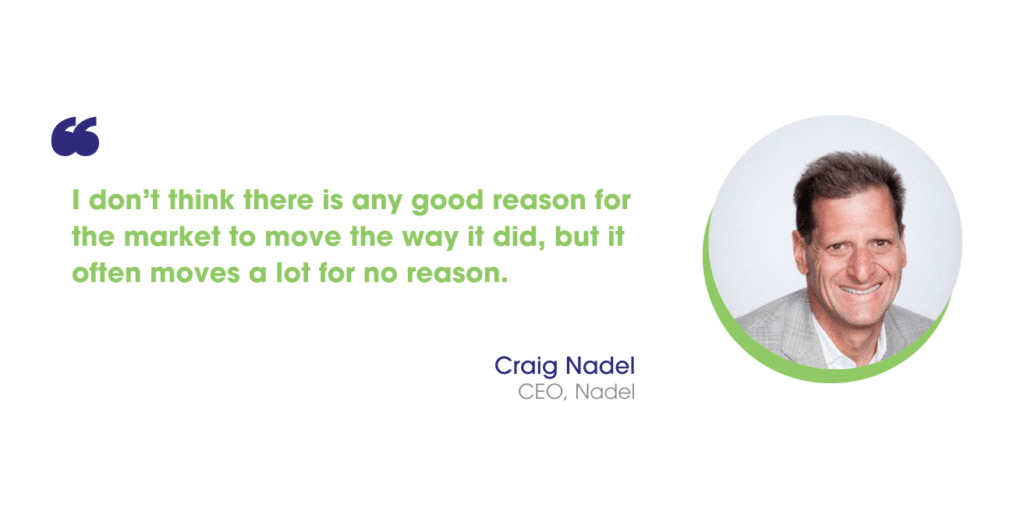
“In the long run, many companies, especially in tech, depend on options for their employees. If the market goes way down, those companies will have problems keeping employees and that does change things. We’ll have to see.”
Anderson imagines that current economic conditions could certainly foretell the dreaded “recession” we’ve heard about for quite some time, but he does not predict it will be one that should be cause for disaster.
“Given that the economy is fundamentally stronger than it was on the eve of our last non-pandemic recession (when toxic mortgages and high household debt brought the economy to its knees), my expectation is that we will see, at worst, a shallow recession,” says Anderson.
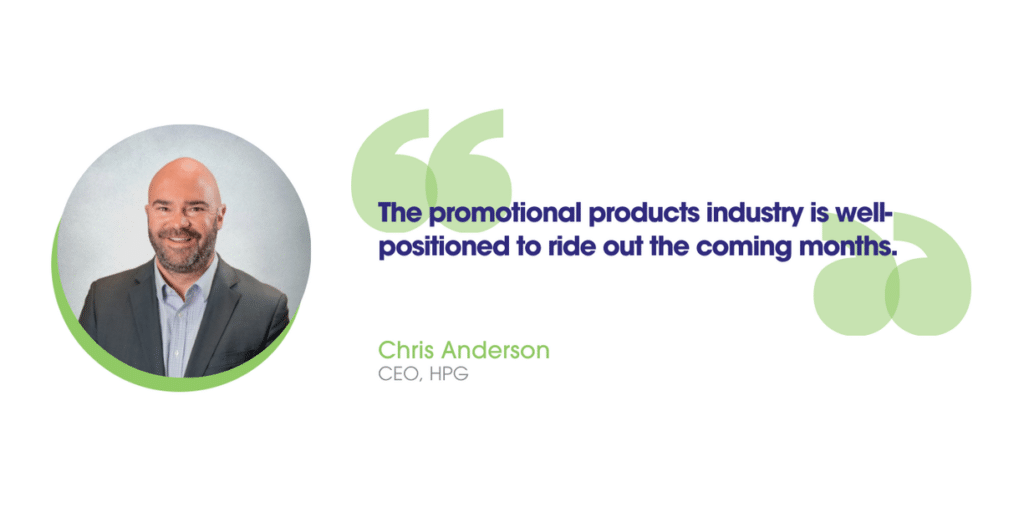
“The promotional products industry is well-positioned to ride out the coming months,” Anderson continues. “There will likely be shifts in demand within the industry (to low-cost items of daily use, if past recessions are any indication); but, as proven in the 2008 recession, this industry is large, diversified and resilient – and market headwinds can also lead to new growth opportunities for savvy distributors and suppliers.”
Impact On Publicly Traded Promo Firms
The stock market’s brutal day showed directly in the closing numbers of promo’s publicly traded companies. There was a variance in the performance among distributors, but none of them avoided losses by the time the market officially closed.
- 4imprint – the No. 1 distributor in the PPAI 100 – saw shares drop almost 9.3% at the close of Monday.
- Shares of Cimpress, parent company of VistaPrint – the No. 36 distributor – fell about 6.5%.
- Meanwhile, Stran Promotional Solutions, the No. 20 distributor, saw shares drop 5.7%.
- Superior Group of Companies, parent firm of BAMKO, the No. 6 distributor saw shares drop about 5.4%
- It was also a 5.4% drop in shares for Deluxe, the No. 24 distributor.
- Faring a bit better, Cintas Corporation, the No. 23 distributor, saw shares decrease only 2.2%
By the end of the day, publicly traded suppliers fared slightly better than their distributor counterparts.
- Gildan Activewear, the No. 10 supplier, finished the day down 1.74%.
- 3M Promotional Market, which is ranked the No. 13 supplier, saw shares drop 0.50%.
- Hanes, the No. 66 supplier, fell about 1.67% in shares.
If the economy takes a misstep, distributors who can demonstrate value to their customers will be best positioned to endure, according to Aaron Hamer, CEO of Boundless – the No. 7 distributor in the PPAI 100.
“That can be in the form of offering their balance sheet to take the pressure off inventory programs, creating efficiencies through the use of technology as customers may have more work to do with fewer people or developing solutions to fit new budgets,” Hamer says. “It will certainly be important for all of us to be ready to sell branded merchandise as a high ROI investment.”


